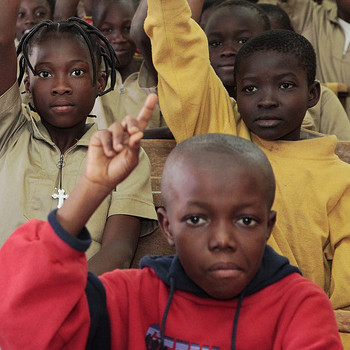In Oc tober 2014, after more than two years of research, collaboration and travel, MLJ Adoptions was proud to open its second African intercountry adoption program in the West African nation of Burkina Faso. Our Burkina Faso program, as of the time of this writing, is currently designated as a “pilot program.” MLJ Adoptions refers to its new intercountry adoption programs as a “pilot programs” until such a time that the first child adopted through the program by an MLJ Adoptions’ family arrives home.
tober 2014, after more than two years of research, collaboration and travel, MLJ Adoptions was proud to open its second African intercountry adoption program in the West African nation of Burkina Faso. Our Burkina Faso program, as of the time of this writing, is currently designated as a “pilot program.” MLJ Adoptions refers to its new intercountry adoption programs as a “pilot programs” until such a time that the first child adopted through the program by an MLJ Adoptions’ family arrives home.
Burkina Faso ratified the Hague Adoption Convention in 2006, and it went into effect that same year. As such, Burkina Faso is considered a Hague Convention Country, meaning there are additional safeguards by which Burkina Faso operates to ensure adoptions are both ethical and in the best interests of the children. Hague Convention Countries tend to be more stable and predictable in processing adoptions and are less likely to be reactionary and make quick decisions that negatively impact the adoption process.
Regardless of whether or not a country is a party to the Hague Adoption Convention, we know that for families in the research phase of their adoption journeys who are still deciding from which country to adopt, as compared to an established country program, it may be less enticing to enter an agency’s “pilot program” and begin the adoption process from a country where the agency has no client family with a completed adoption. Particularly if the country does not have a strong prior history of adoptions to the United States.
Though a country may historically have had only a minimal number of adoptions to the United States, statistics drawn from other receiving countries can provide insight as to a sending country’s commitment to intercountry adoption. For example, while there were only three adoptions from Burkina Faso to the United States in 2013 (the year from which the most recent data is available), there were a total of 74 adoptions from Burkina Faso to European countries in 2013, 87 in 2012, 94 in 2010, 61 in 2009, 68 in 2008, 77 in 2007, and 115 in 2006. As you can see, since the Hague Adoption Convention went into effect in Burkina Faso in 2006, adoptions from Burkina Faso to European countries have been steady.
Providing additional context to the small number of adoptions from Burkina Faso to the United States is the fact that the Hague Adoption Convention went into effect in Burkina Faso prior to the Hague Adoption Convention entering into force in the United States in April 2008. If a country is a party to the Hague Adoption Convention, outgoing adoptions from that country can only occur to other recognized Hague Convention Countries. As such, for the timespan during which the Hague Adoption Convention was in force in Burkina Faso, but not yet in the United States, it was not possible for U.S. citizens not resident in Burkina Faso to adopt from Burkina Faso. In contrast, adoptions from Burkina Faso to other Hague Convention Countries where the Hague Adoption Convention was already in effect, like Denmark, France, Italy, and Germany were permissible.
Thus, the history of adoptions between Burkina Faso as a Hague Convention Country and the United States as a Hague Convention Country is not a long one; it is a relationship that is less than seven years old. In the short time that Burkina Faso has permitted adoptions to the United States, only a few U.S. adoption agencies have gone through the lengthy Burkinabe authorization process to open an adoption program in Burkina Faso.
To operate as an adoption agency in Burkina Faso, an adoption agency must be approved by the Burkinabe Central Authority. Agencies from countries where the Hague Adoption Convention has been in effect since 2006 (the date the Hague Adoption Convention went into effect in Burkina Faso), such as Denmark (since 1997), France (since 1998), Italy (since 2000), and Germany (since 2002), have been able to operate in Burkina Faso longer than any U.S. agency. Consequently, there are a number of Danish, French, Italian, and German adoption agencies authorized by the Burkinabe Central authority, while there is only a small smattering of U.S. adoption agencies, including MLJ Adoptions, who have been authorized by the Burkinabe Central Authority.
We believe the established history of adoptions from Burkina Faso to Hague European countries illustrates Burkina Faso’s commitment to ethical adoption practices and international adoption as an option for children without the possibility of a family in Burkina Faso. We also believe this history is indicative of a promising future for stable adoptions from Burkina Faso to the United States. MLJ Adoptions is excited for the opportunity to partner with prospective adoptive parents for the opportunity to serve children in need of permanent families in Burkina Faso.
Please contact us for more information on our Burkina Faso international adoption program.
Photo Credit: DFID – UK Department for International Development
